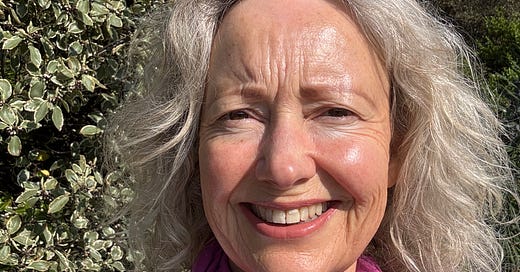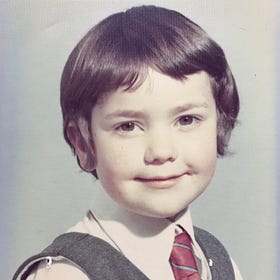I grew up with a sense that I was wrong.
That I’d done something wrong.
Simply by showing up, by being around.
I felt like everything was my fault, my responsibility.
It was my fault that Mum was unhappy.
It was my fault that my parents separated.
It was my fault that Dad moved out.
It’s not surprising that I felt this way.
This is a normal response for a kid growing up in a dysfunctional home.
As children, we respond this way because:
We must preserve the good image of the parent, because we instinctively know that we won’t survive if the parent isn’t capable of taking care of us. So we project goodness onto the parent and badness onto ourselves. We make them right and we make ourselves wrong.
It gives us a sense of control in what may be a chaotic, out-of-control environment. If it’s my fault, if I caused this mess, then I can do something about it. I can put it right. This control gives me hope and this hope counters the despair and gives me something to live for.
Of course, bad things happen in plenty of homes and not all kids are emotionally scarred or psychologically wounded.
That’s generally because they had healthy adults around them who helped them to make sense of what was going on and who reassured them that the event - an argument, a divorce, an abandonment - wasn’t their fault and that they were loved.
These kids experienced a stressful situation as just that - a stressful situation. They processed it, with the support of others, and moved on with their lives.
But the kids who didn’t have healthy adults to help them make sense of what was happening and to soothe and reassure them experienced stressful situations as traumatic events.
The memory of what happened lodged itself deep in their psyche, leading to the development of survival strategies or coping mechanisms (control, self-blame, perfectionism, addictions and so forth).
The memory, or memories, also led to triggers in later life - moments when their minds flash back to the original event and they feel like they are reliving it. They are a child again in a scary grown-up world, feeling the same feelings of fear or despair.
This is known as developmental trauma or Complex PTSD.
It must be my fault, right?
I was the latter kid.
Big stuff happened; painful stuff.
Nobody helped me to process it psychologically or emotionally (and I was also a sensitive child from birth).
So I felt like it was my fault.
And I experienced developmental trauma.
I developed coping mechanisms and survival strategies (control, perfectionism, self-blame, an eating disorder, workaholism and self-destructive, addictive behaviours around alcohol, love and sex).
I developed a habit of trying to make it right for the other person (because I must be wrong), leading to self-censorship, silence, codependency and the suppression of my true self.
I experienced and continue to experience triggers - moments when present-day situations, such as standing up to authority figures, using my voice or arguing my corner - trigger a childhood memory and I regress to being a kid.
I feel like I’m aged seven again, speaking up to an alcoholic adult, asking them to drink less, and being met with their rage, being told I was wrong.
I remember this particular incident well and now understand how it led me to fear speaking my truth, especially to authority figures, as well as to doubt my truth, my intuition and my perception of reality (because the parent has to be right and therefore I must be reading this situation wrong).
My life is right
Huge healing has happened over the past 20+ years as I’ve recovered from my eating disorder, healed other addictions and understood and found support for my Complex PTSD or developmental trauma.
It’s been quite the journey.
Today, most of the time, I know when I’m triggered and I can use healthy ways to soothe the scared child within and bring myself back into my adult so that I can show up authentically and respond in a grown-up way to challenging situations.
But this feeling of being wrong has been around for a long time. It’s ingrained, deeply rooted, and it still rears its ugly head.
Before I go on, it’s important to say that I’m not perfect (shock) and I am sometimes in the wrong, or I sometimes behave in ways that are less than ideal, or I mess things up with people, because I didn’t have great relationship role models as a child and some of my old coping strategies remain. But if I do mess up, I do my best to see my part, take responsibility for my behaviours, make amends and learn from what happened.
This is different to the pervasive sense that I’m wrong, that there’s something wrong with me, which leads me to doubt and blame myself and make other people right, and which can still show up in my interactions with others, especially where there’s the potential for confrontation or another’s anger or rage.
The feeling that I’m faulty or wrong also shows up in relation to how I live my life.
Let me explain.
I am a 54-year-old woman without children.
That’s how my life turned out (read the post below, if you haven’t already, to find out how I ended up here).
I am childless because of my childhood
Today, at the end of choir, one of the members shared photos with me of his seventh grandchild.
As a woman who is childless (due to complicated circumstances and potentially a subconscious choice), I can feel wrong in a society where the majority of women are mothers and most people are parents.
I can especially feel wrong in the town where I now live, which, unlike the metropolises I’ve inhabited in the past - London, Sao Paulo, Mexico City), is heavily populated by families with kids, or perhaps the families are more evident here because of the circles I move in, or my neighbourhood or the size of the place.
I can even focus in on this difference, looking for evidence that I don’t belong and that I’m doing life wrong, rather than noticing all the people who are living wonderful, unconventional lives, and loving them.
If I were reluctantly single as well as being childless (which I know many of my lovely readers are), I might fall into the trap of feeling even more wrong, even more like I don’t fit in, even more like I’ve taken some faulty turns in life or made some bad choices.
And, as I did in my single years, I might spend a lot of my time noticing the people who, on the outside, seem to have it sorted, living conventional lives, and failing to see the ones who are doing life in alternative ways, like me.
Letting go of faulty thinking
When these thoughts strike, I can do the following:
See them for what they are - the remnants of a troubled past, old survival strategies that were designed to keep me safe in an unsafe environment but that I don’t need anymore.
Acknowledge their arrival but quickly wave them goodbye.
Step to one side and let them pass by me.
Stand tall and let them wash over me.
Open my eyes to all the people who are doing life their way and owning it, from the single to the childless to the childfree to the wonderful rainbow of relationship combinations, of all shapes, sizes, colours, creeds and genders.
Affirm and celebrate my own precious life that I have fully lived, the highs, the lows and the bits in between, the vibrant reds, the dark greys, the deep blues and the bright greens.
And to say to myself, out loud …
There is nothing wrong with you, dear one.
Your life is spot on.
You belong.
You are worthy.
And you’re doing great.
What is your experience of feeling faulty or wrong and what healing practices have you used to lay those old beliefs to rest?
I’d love to hear from you in the comments or by email.







I like to remind myself that everyone makes mistakes and if there is something to be learned from the mistake.